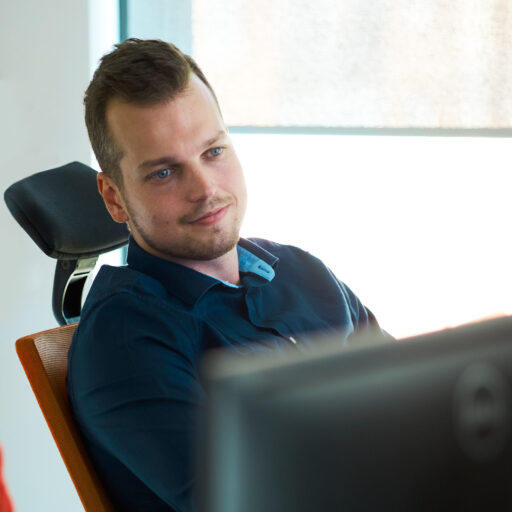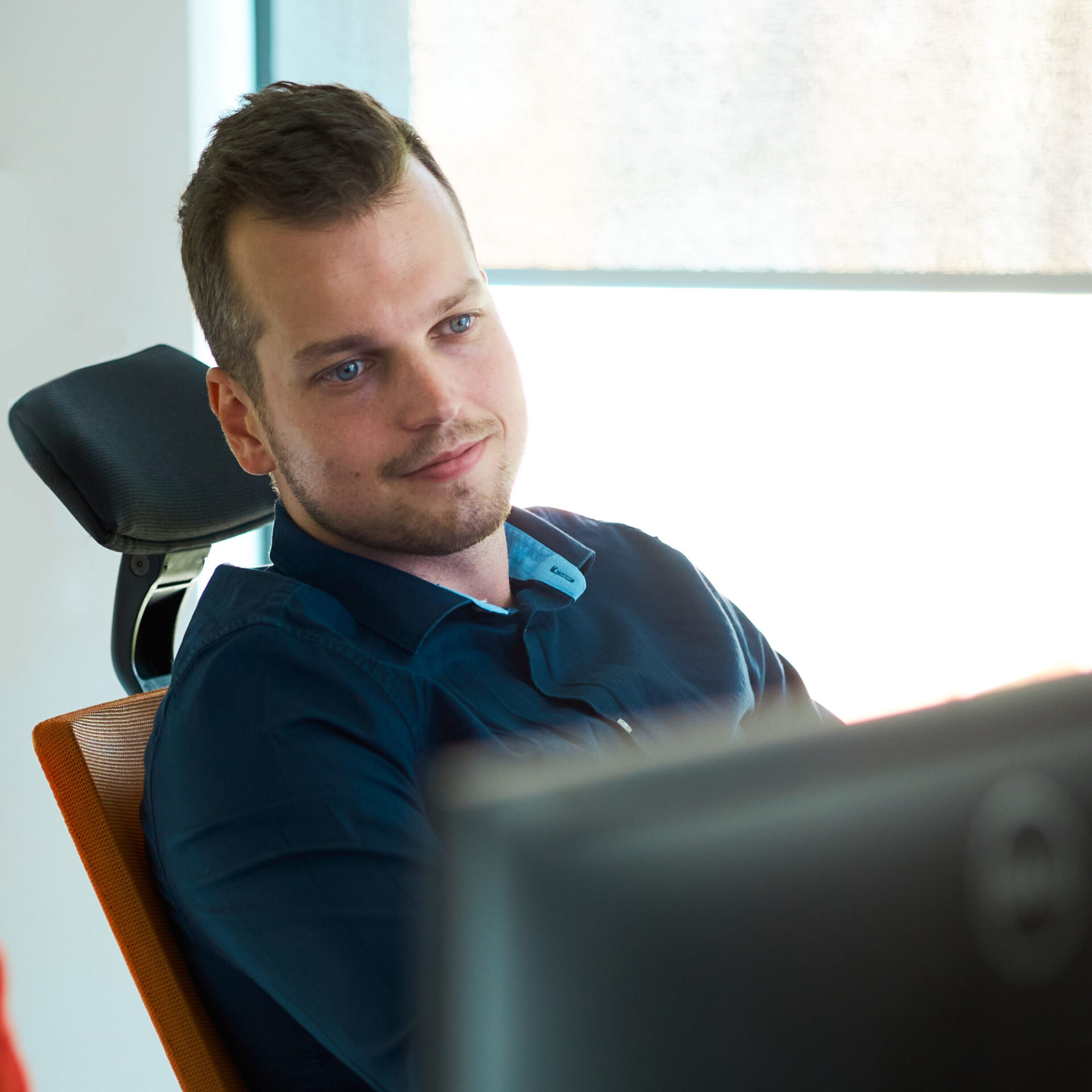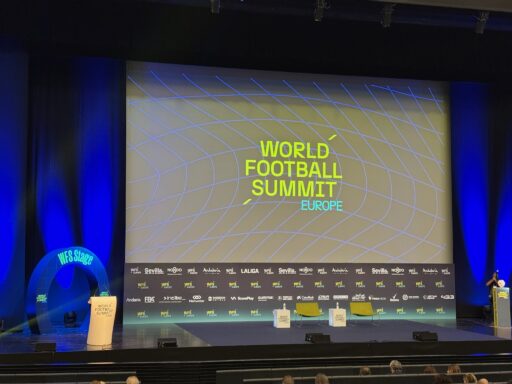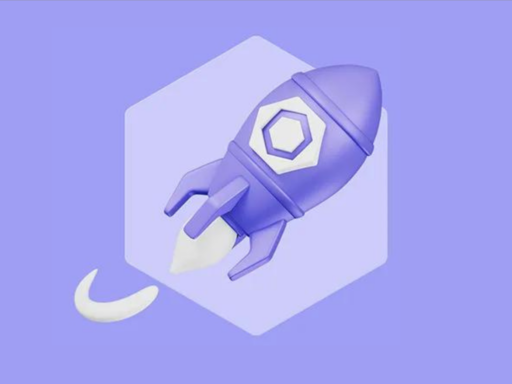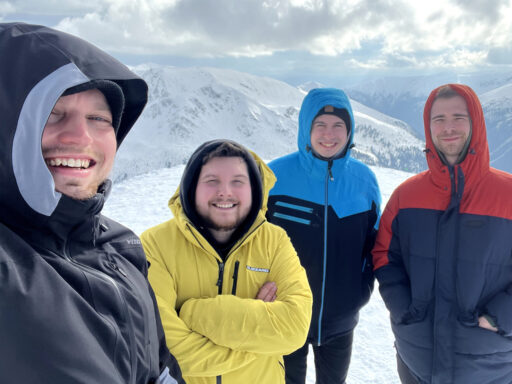When he joined us in 2012, bart consisted of barely 10 people. As a fullstack programmer, he was tasked with coding the ecotechnologies.sk website. That’s when he realized that his knowledge was far from sufficient. So he immersed himself in intensive self-study on top of working. Today, he does business analysis for one of our largest projects, stands behind the Frontend Masters event, actively participates in lectures, mentors younger colleagues and students, and conducts technical interviews with us on top of all that. What advice would he give to programmers – juniors and where does he look for motivation? That’s one of the questions we asked him in the interview.
Let me start with an unusual question. What did you want to be when you were little?
That’s hard to say. Now I see in my son that it changes relatively often. I don’t remember my dream job, but I guess I won’t be amiss if I name those of my son: garbage man – fireman – astronaut (in this order). I didn’t want to be a programmer. I didn’t even know there was such a thing.
When I had a computer, I only knew one thing – I wanted to make games. Listen to this now. I had no internet and no one around did. And then when I did, it was the kind that had to play a song of its people before you could connect to it. Then, of course, mom wanted to make a phone call, so I got disconnected.

How do you remember your programming beginnings? After all, it’s much easier for novice programmers today when it comes to self-study.
Well, I got all the programming information from those paper things that have a lot of pages. They’re either from a library or you can buy them. I might still find a book about PHP 4 at home.
It really is easier today, but I feel that passion can’t be learned either from Stack Overflow nor will it be instilled in you with any YouTube tutorial. The advantage today is that if you really want to, you have a whole universe of tutorials, forums, videos and, of course, the latest player – ChatGPT.
You started in bart as a student and today it’s you who mentors and educates students here. How do you evaluate your career path from the beginning to today?
I find it difficult to measure my progress. I’d rather be assessed by others. A sure thing is the beginning was very difficult. I absolutely endorse the words of my former colleague: “Before I came to bart, I thought I knew how to program.” I handed in my entry task at that time as one of the worst in the company’s history. Despite that, I was given a chance to show what was in me. It can be said that I balanced the lack of knowledge and experience with tremendous effort and passion for the matter.
Do you enjoy it? Mentoring, educating others…
I’ve always enjoyed educating others. I try to convey my passion for what I do to those around me. The nice thing about passing on knowledge is that it’s reciprocal. It often happens that a person learns new things when explaining something.
A beautiful project that I managed to start with the help of the company was Frontend Masters Košice and I’m proud that it lasted until today ? Perhaps we managed to get a few people on the developer path or at least show them the right direction.

The idea of organizing the Frontend Masters event was created in your head. What led you to this?
I wanted to pass my passion on to the people around me. It started when I learned SCSS. It wasn’t used anywhere in the company and I wanted everyone to start using it. Marek saw the value in this and made it clear that we should educate not only our colleagues, but the entire programming public. He scared me to death at the time, but it was only because of the number of people who came that we managed to make the event really visible. I’d like to thank all my colleagues, current, past and future, who have agreed to prepare a topic and give a lecture on it. Talking in front of 80 or more people requires a proper step out of your comfort zone.
A lot of people probably register you thanks to Frontend Masters. Do you think it’s important to organize events of this type nowadays? Today, there are countless lectures and tutorials on the Internet.
Sometimes I myself don’t know anymore. The main purpose of such events is to broaden the horizons. Sometimes one can close oneself into a bubble of opinions and instruments, and can’t step out of that bubble. At conferences, a person usually comes to some specific lectures that they want to see, but when they’re there, they often listen to others as well. Here, somebody presents their bubble to them and thanks to that they’re able to get out of their own bubble.
Thanks to / because of covid, we also did a few online broadcasts from our provisional studio, which my colleague Erik and I set up ? After the end of the broadcast, we high-fived and went home. If you want me to compare it to when the whole auditorium applauds you, it’s a bit different cuppa tea. ? It’s a happy culmination of all your preparation and effort.
I liked the combination of the physical and online. This way, you have the opportunity to get to know people, you are physically there, you get out of the house, you have a potentially big impact. The downside is, of course, that this is the most technically complicated option, ? But we’ve managed even that.
I probably liked best the events that ended with a beer with the people who came to see them.
| Editor’s note: The latest part of the Frontend Masters event with the theme of GraphQL in practice will take place on March 22 at 17:00 in UVP Technicom. Link to FB event: http://shorturl.at/gDT46. You’re invited! |
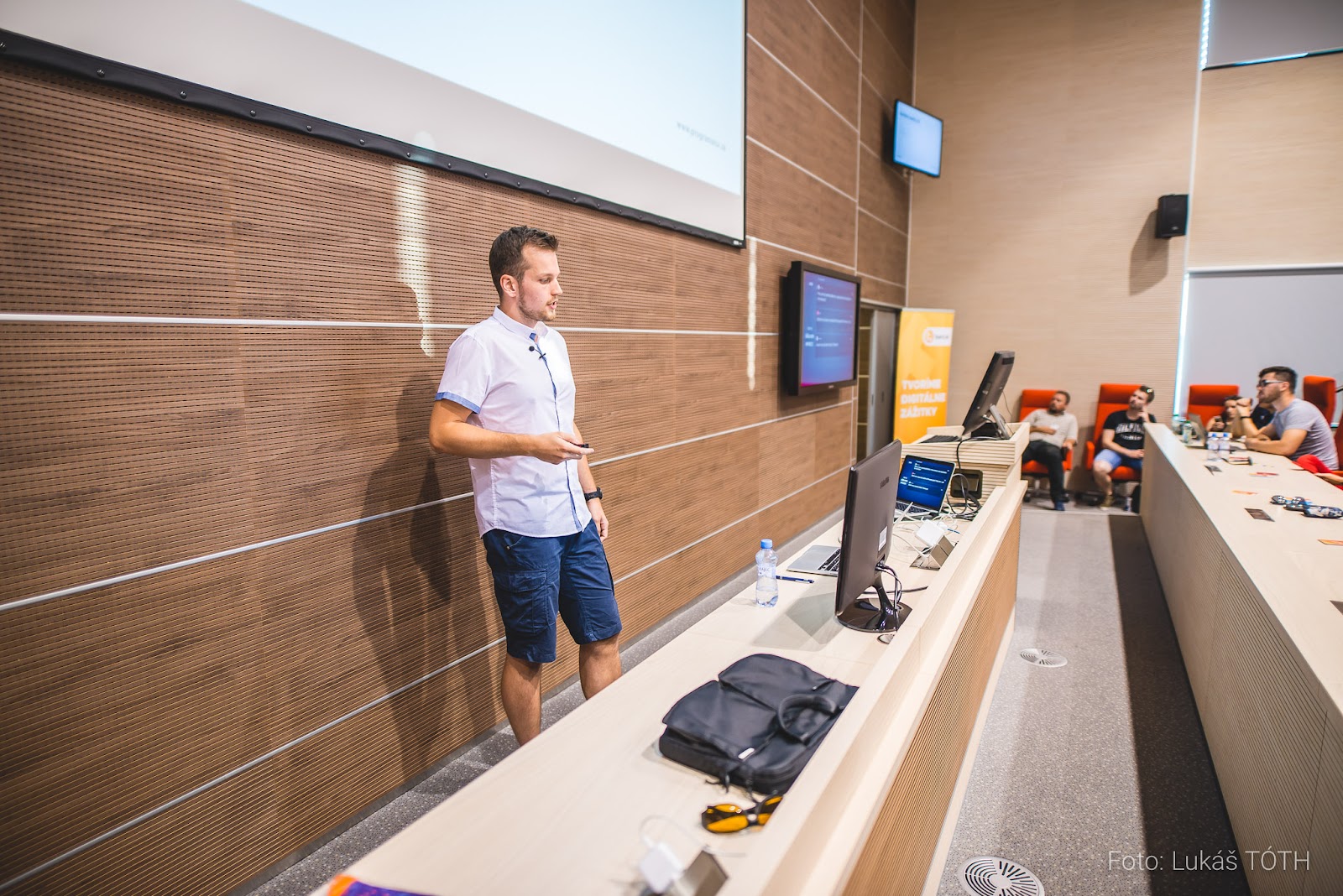
Among other things, you’re also responsible for the technical part of the selection process. How did you get to that? Was that a challenge for you?
Although I’ve been interviewing for six years, the challenge is still there. Deciding whether to give someone a chance or not is still difficult for me. Before an interview, I always remember my beginnings, my stress.
I’m looking for a kind of drive or passion in candidates. Unfortunately, I still haven’t come up with a magic proposition, a formula or a list of questions that would ensure that the candidate I recommend to the company will also be a good colleague. But I’m thankful for the fact that Monika has been there with me for the last few years – at least the decision is split into two and it’s not just me.
Do you have a cute/funny story when it comes to that?
Monika and I are trying to set up a light atmosphere and sometimes we laugh with the candidates quite a lot ? I still got feedback that I’m very strict, so I don’t know ?
What about your personal development? Especially in the area of the frontend, you need to be on the alert if you want to keep up with new technologies. Or in your case, you probably want it more than you have to, right?
I started in 2012 and back then, everyone who made websites was a fullstack developer. Later I did backend too, but I was most enchanted by frontend. I also have the most lectures about it. But I feel like I’m past my frontend peak right now. Now I look at it more in terms of architecture and the contribution of values to the target group.
For the last two years I’ve been trying to be useful as a UI/UX designer and recently I changed my role to a product owner, which I combine with the role of a business analyst. Every new job opens your eyes. For example, I’ve found out that programming work is actually easy (if you know how to do it ?). By the time programming begins, a significant part of it has already been invented and analyzed. The bigger problem is at the beginning when we talk about business, benefits for the client, target groups or high-level goals. At that time, it’s not yet clear what such a solution will look like and how it will actually behave.
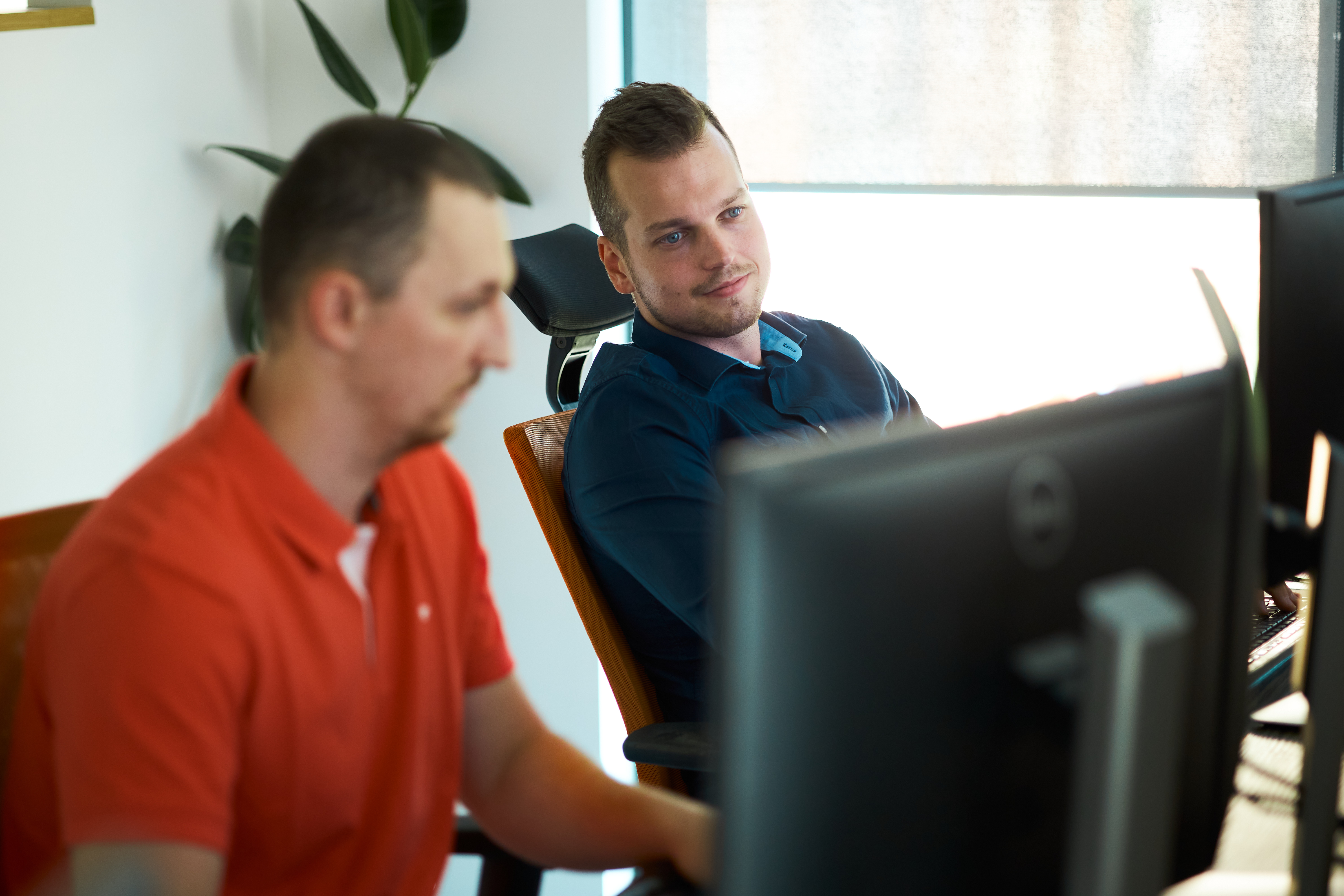
It’s quite a lot, and we’re still only talking about work activities? But you’re also active outside of work. Can you tell us about your free time activities? What do you enjoy and where do you look for motivation?
Since I don’t program as much at work, I still want to stay in shape. That’s why I work on a personal project, where I usually try something new and then, if it works out for me, I can translate it into work.
I’m a bit of a DIY guy, I like to craft using wood, and last year I acquired a 3D printer, so I annoy everyone with procedures, materials and the latest products. In addition to that, I keep our home at a sort of smart level.
And when it comes to sports, this is my second year of practicing a mix of calisthenics and strength training. I’d like to be able to do handstands, but I’m not there yet ? Last year I also learned to ski and this year I went to Kasprowy Wierch with my colleagues. BTW, skiing is a blast. Better than snowboarding! But I guess that goes with age ?.
How do you keep your work-life balance on such a busy schedule?
Time management is an illusion. I don’t set a strict work-life balance. When I need to stay at work longer, I stay. When they need me at home, work has to wait. I can say that I want to be with the children more than I am, because it’s with them that one realizes how quickly time flies. But when I’m with them, I try to be there 100%. And when I’m at work, I try to put 100% in there.
My wife deserves her own paragraph. Without her, this would have been a much shorter article. Thank you for still standing behind me (and beside me).
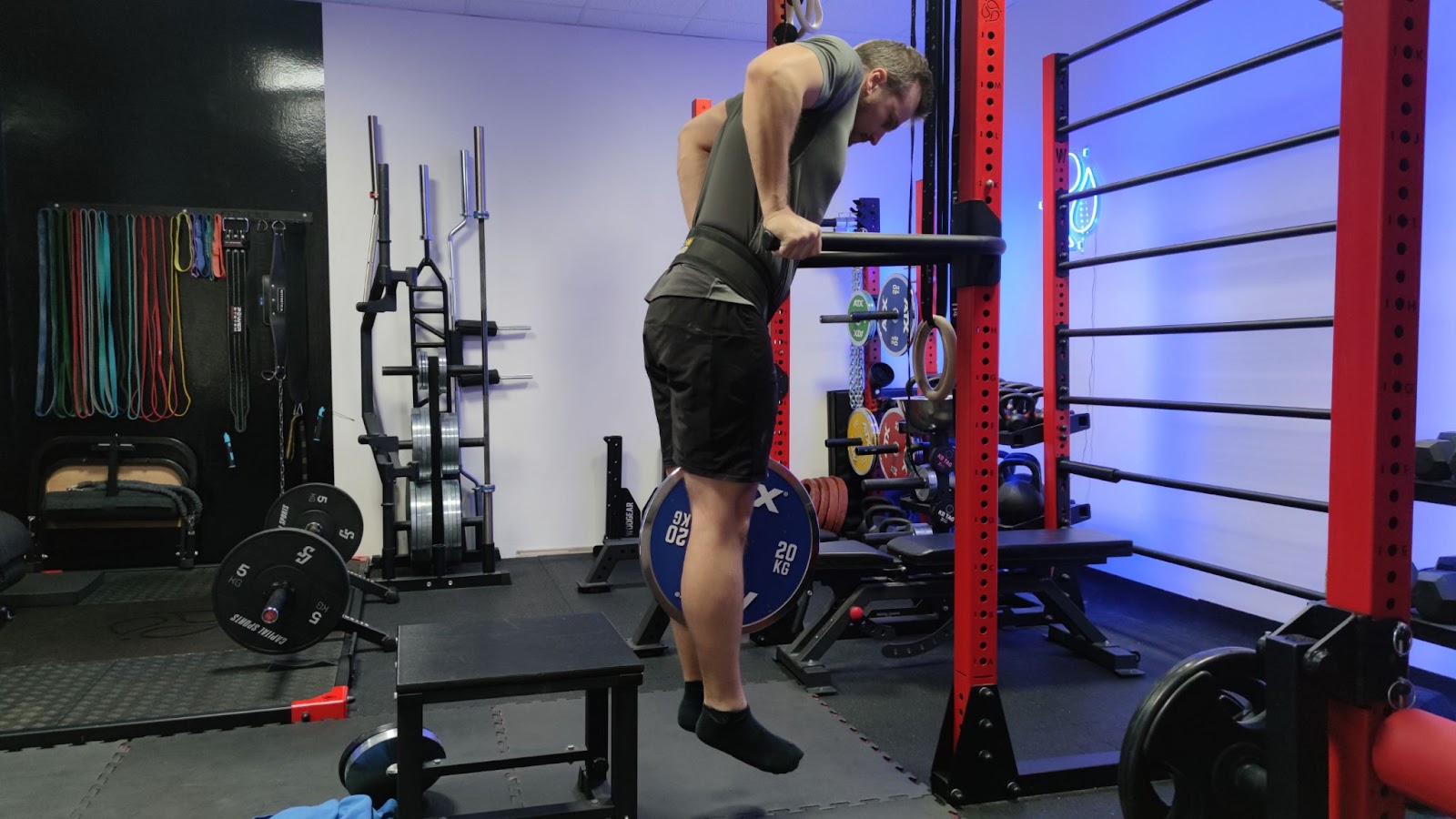
What would you say to a beginner programmer?
We all face major challenges in the form of AI in the coming years. For the first time in my life I had anxiety, if only for a moment, that my beloved programming would disappear. That I would be replaced. Of course, not yet, but who knows what will happen in 5-10 years?
Junior programmers are the most endangered group. Easiest to replace. If it was hard before, it’ll be even harder now. They need to learn to embrace these new technologies and make full use of them. Plus, it would be great if it actually fulfilled them. So my advice is simple – make yourself senior as soon as possible. Work, discover, ask, find out why and how things work and it’ll be fine.
Thank you for the interview.


